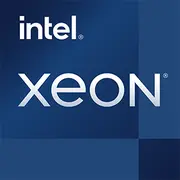Intel Xeon E-2378G

The Intel Xeon E-2378G processor is a powerful option for server platforms, offering excellent performance and efficiency for a variety of tasks. With a total of 8 cores and 16 threads, this processor is capable of handling demanding workloads with ease. The base frequency of 2.8 GHz and maximum turbo frequency of 5.1 GHz ensure fast processing speeds, making it suitable for a wide range of applications.
The integrated UHD Graphics P750 model provides decent graphics capabilities, making it a versatile option for server use. The 16MB L3 cache helps to improve overall system responsiveness and performance, while the 80W TDP ensures that power consumption remains reasonable.
In benchmark tests, the Intel Xeon E-2378G processor performs impressively, with a Geekbench 6 Single Core score of 2391 and a Multi-Core score of 10433. This highlights the processor's ability to handle both single-threaded and multi-threaded tasks efficiently.
Overall, the Intel Xeon E-2378G processor is a solid choice for server applications, offering strong performance, low power consumption, and excellent benchmark results. It is a reliable option for businesses and professionals looking for a high-performance CPU for their server setups.
Basic
Label Name
Intel
Platform
Server
Launch Date
September 2021
Model Name
?
The Intel processor number is just one of several factors - along with processor brand, system configurations, and system-level benchmarks - to be considered when choosing the right processor for your computing needs.
Xeon E-2378G
Code Name
Rocket Lake-E
Foundry
Intel
Generation
Xeon (Rocket Lake-E)
CPU Specifications
Total Cores
?
Cores is a hardware term that describes the number of independent central processing units in a single computing component (die or chip).
8
Total Threads
?
Where applicable, Intel® Hyper-Threading Technology is only available on Performance-cores.
16
Performance-core Base Frequency
2.8 GHz
Performance-core Max Turbo Frequency
?
Maximum P-core turbo frequency derived from Intel® Turbo Boost Technology.
5.1 GHz
L1 Cache
80K per core
L2 Cache
512K per core
L3 Cache
16MB shared
Unlocked Multiplier
No
Multiplier
28.0
Bus Frequency
100MHz
CPU Socket
?
The socket is the component that provides the mechanical and electrical connections between the processor and motherboard.
Intel Socket 1200
Technology
?
Lithography refers to the semiconductor technology used to manufacture an integrated circuit, and is reported in nanometer (nm), indicative of the size of features built on the semiconductor.
14 nm
TDP
80 W
PCIe Version
?
PCI Express is a high-speed serial computer expansion bus standard used for connecting high-speed components, replacing older standards such as AGP, PCI, and PCI-X. It has gone through multiple revisions and improvements since its initial release. PCIe 1.0 was first introduced in 2002, and in order to meet the growing demand for higher bandwidth, subsequent versions have been released over time.
4
Memory Specifications
Memory Type
?
Intel® processors come in four different types: Single Channel, Dual Channel, Triple Channel, and Flex Mode. Maximum supported memory speed may be lower when populating multiple DIMMs per channel on products that support multiple memory channels.
DDR4-3200
Memory Channels
?
The number of memory channels refers to the bandwidth operation for real world application.
2
ECC Memory Support
Yes
GPU Specifications
Integrated Graphics Model
?
An integrated GPU refers to the graphics core that is integrated into the CPU processor. Leveraging the processor's powerful computational capabilities and intelligent power efficiency management, it delivers outstanding graphics performance and a smooth application experience at a lower power consumption.
UHD Graphics P750
Miscellaneous
PCIe Lanes
20
Benchmarks
Geekbench 6
Single Core
Score
2356
Geekbench 6
Multi Core
Score
10069
Geekbench 5
Single Core
Score
1714
Geekbench 5
Multi Core
Score
8337
Passmark CPU
Single Core
Score
3389
Passmark CPU
Multi Core
Score
21218
Compared to Other CPU
Geekbench 6 Single Core
Geekbench 6 Multi Core
Geekbench 5 Single Core
Geekbench 5 Multi Core
Passmark CPU Single Core
Passmark CPU Multi Core
Share in social media
Or Link To Us
<a href="https://cputronic.com/en/cpu/intel-xeon-e-2378g" target="_blank">Intel Xeon E-2378G</a>